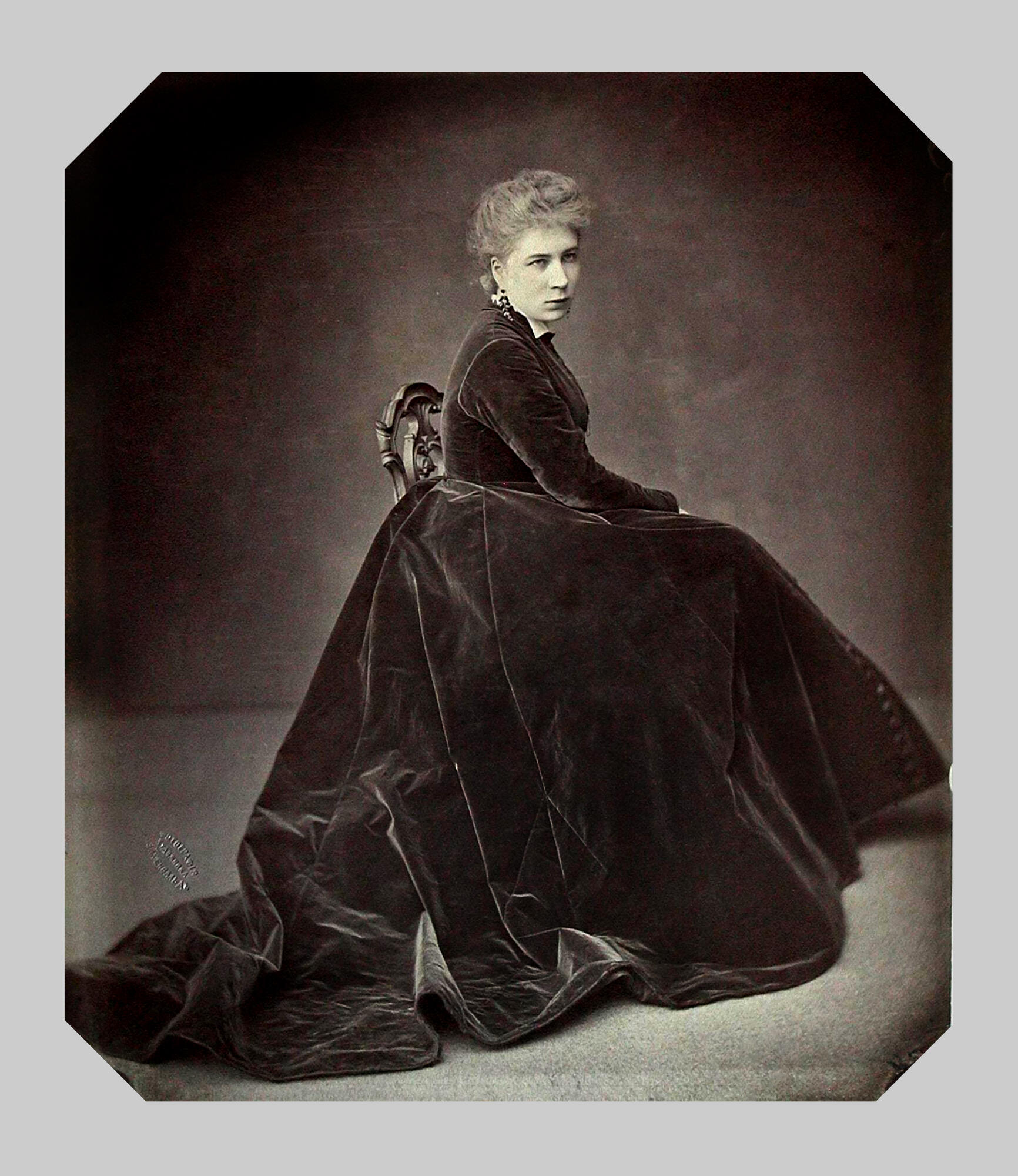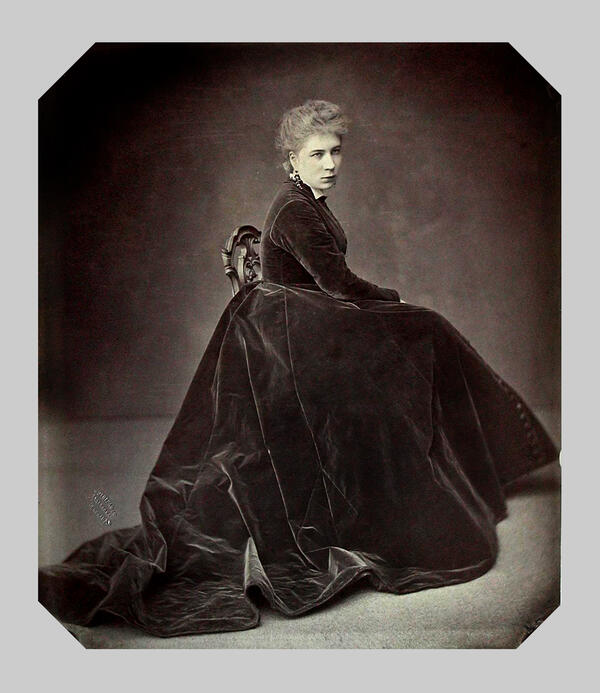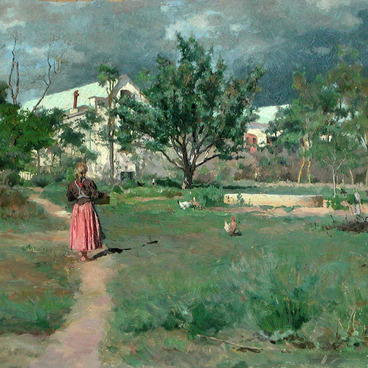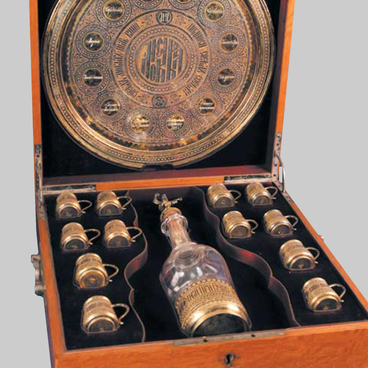This is a photograph of Désirée Artôt, a great Franco-Belgian opera diva known for her iconic performances of mezzo-soprano parts, as well as dramatic and lyric coloratura soprano repertoire. Désirée was born into a family of a Brussels Conservatory professor in 1835. She took singing classes since childhood, and her operatic debut took place at the Paris Opéra when Désirée was 23 years old. Her acting and vocal skills quickly made Désirée the public’s favorite and the new prima donna in Paris.
In 1868, Artôt came to Moscow to perform at Morelli’s Italian opera combination company. After attending her performances, Tchaikovsky was very impressed and called Désirée an ‘outstanding and talented performer’: Europe’s favorite won his heart right there and then. They got acquainted that spring, and the rapidly growing mutual liking they developed led the couple to announce their engagement in the fall. However, those close to Tchaikovsky and Artôt disapproved of their relationship. The singer’s mother thought the poor aspiring composer was not a good match for her daughter. Tchaikovsky’s friends, especially pianist Nikolai Rubinstein, actively tried to dissuade him from the marriage. They believed marrying a famous and affluent singer would reduce him to the pitiful role of a theater star’s spouse, and constant touring would get in the way of composing music.
The couple’s engagement was soon broken off without any involvement of their close ones: a month after leaving Moscow, Désirée married Spanish baritone Mariano Padilla. After the wedding, she went on European tours and performed together with her husband in Italy, Berlin, and Paris. Tchaikovsky took the news of her marriage to heart, but later on, he still attended her concerts whenever she came to perform in Russia. They met again only twenty years later, in Germany, where Tchaikovsky toured as a conductor. At a formal dinner, Désirée asked the composer to write a romance for her. Tchaikovsky wrote six. As she received her gift, the singer responded: “I only wished for one song, and you were generous enough to write six. They say one can be generous as a king, but they forget to add: 'or as an artist” .
Désirée’s last stage performance was in 1899, several years after Tchaikovsky’s death; afterward, she worked as a vocal coach until she died in 1907. Her students included the iconic Swedish opera diva, Sigrid Arnoldson.
In 1868, Artôt came to Moscow to perform at Morelli’s Italian opera combination company. After attending her performances, Tchaikovsky was very impressed and called Désirée an ‘outstanding and talented performer’: Europe’s favorite won his heart right there and then. They got acquainted that spring, and the rapidly growing mutual liking they developed led the couple to announce their engagement in the fall. However, those close to Tchaikovsky and Artôt disapproved of their relationship. The singer’s mother thought the poor aspiring composer was not a good match for her daughter. Tchaikovsky’s friends, especially pianist Nikolai Rubinstein, actively tried to dissuade him from the marriage. They believed marrying a famous and affluent singer would reduce him to the pitiful role of a theater star’s spouse, and constant touring would get in the way of composing music.
The couple’s engagement was soon broken off without any involvement of their close ones: a month after leaving Moscow, Désirée married Spanish baritone Mariano Padilla. After the wedding, she went on European tours and performed together with her husband in Italy, Berlin, and Paris. Tchaikovsky took the news of her marriage to heart, but later on, he still attended her concerts whenever she came to perform in Russia. They met again only twenty years later, in Germany, where Tchaikovsky toured as a conductor. At a formal dinner, Désirée asked the composer to write a romance for her. Tchaikovsky wrote six. As she received her gift, the singer responded: “I only wished for one song, and you were generous enough to write six. They say one can be generous as a king, but they forget to add: 'or as an artist” .
Désirée’s last stage performance was in 1899, several years after Tchaikovsky’s death; afterward, she worked as a vocal coach until she died in 1907. Her students included the iconic Swedish opera diva, Sigrid Arnoldson.



